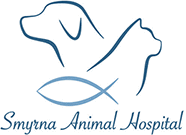You may be surprised to learn that cats and dairy don’t mix—it’s easy to picture a cat contentedly lapping up milk, but it won’t end well! Learn more below from your vet in Marietta, GA.
Why Isn’t Dairy Good for Cats?
The majority of adult cats are actually lactose-intolerant. This is the same condition that affects many humans; it means that the cat doesn’t possess enough of the lactase enzyme in the digestive tract to digest lactose, the primary enzyme in milk. Simply put, most cats can’t digest milk properly.
What Will Happen if a Cat Drinks Milk?
While a small amount of milk may not harm your cat, too much will cause a mess. Vomiting and diarrhea are likely to occur if a cat ingests a large amount of milk, as their system won’t be able to process it and will instead reject it. Ask your vet for more information on the effects of milk and dairy products on your cat’s digestive system.
Don’t Kittens Drink Their Mother’s Milk?
You may be wondering about kittens, who drink their mother’s milk while nursing. It’s true; kittens do digest their mother’s milk. This is, however, the only time in a cat’s life that milk will be a nutritional necessity. Milk is essential early on in life to receive key nutrients for growth, but as a cat grows, less and less lactase is produced. The cat grows more and more lactose-intolerant over time, and when they’re an adult it’s not likely that they’ll be able to digest milk at all.
What About Other Dairy Products?
Milk is a no-no, but what about other dairy products? Since other forms of dairy, like yogurt or cheese, contain less lactose than milk does, these items are generally safer to feed to your cat. Cheese is even an ingredient of many cat treats and diets. However, it’s important not to overdo these substances, as too much of any foreign food may upset your cat’s stomach. If you want to give your cat a special dairy treat, stick to the occasional tiny nip of cheese or a small dab of yogurt.
Another option is a synthetic “cat milk,” which are now widely available in pet stores and some vets’ offices. These products taste just like milk but have the lactose removed, making them safe for feline consumption. Try asking your Marietta, GA veterinarian for a recommendation.



